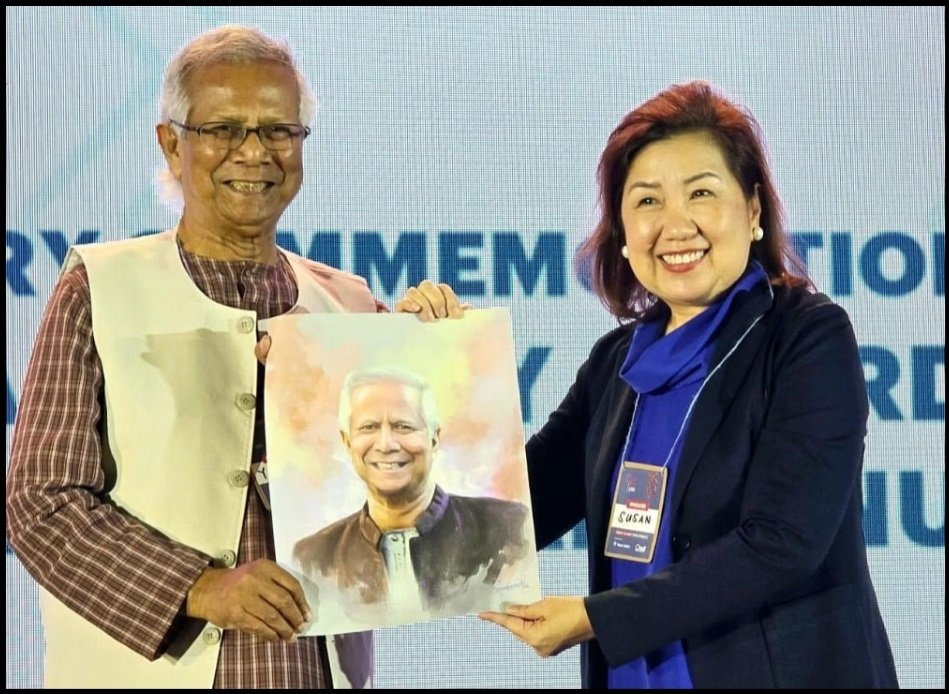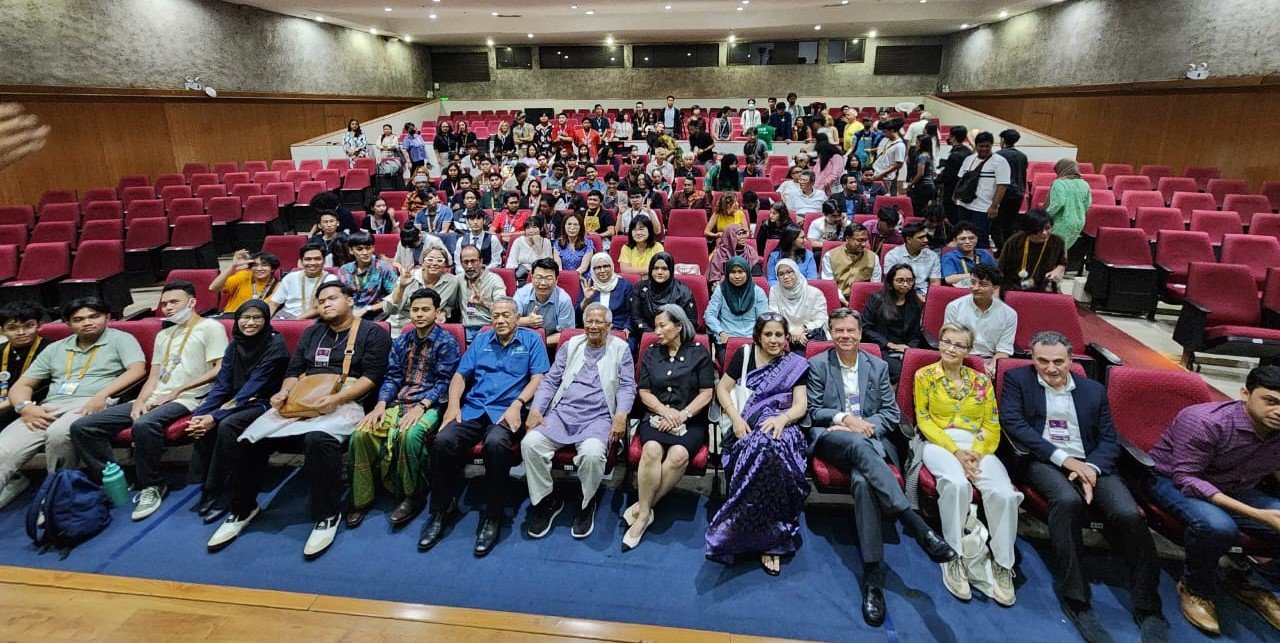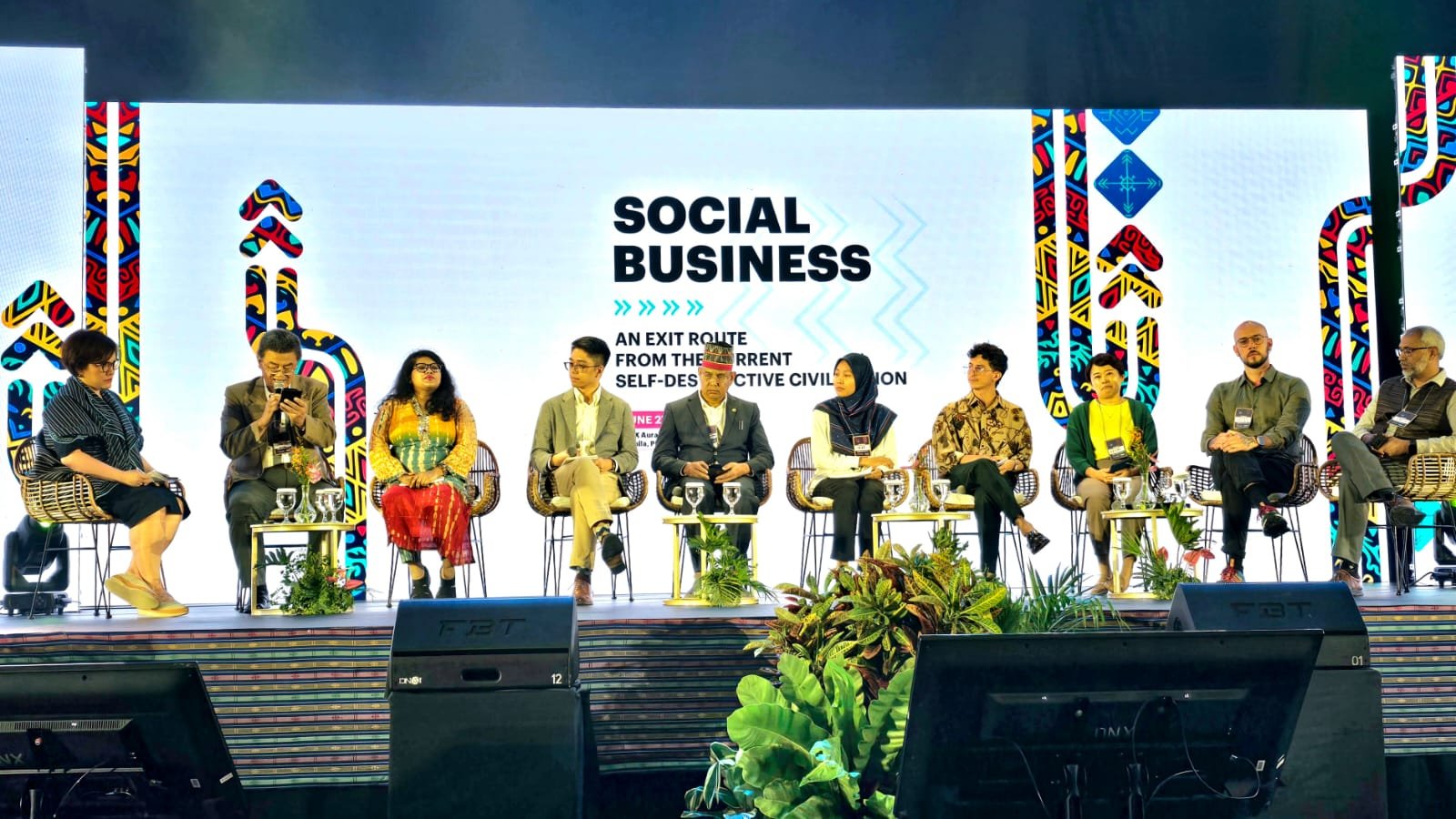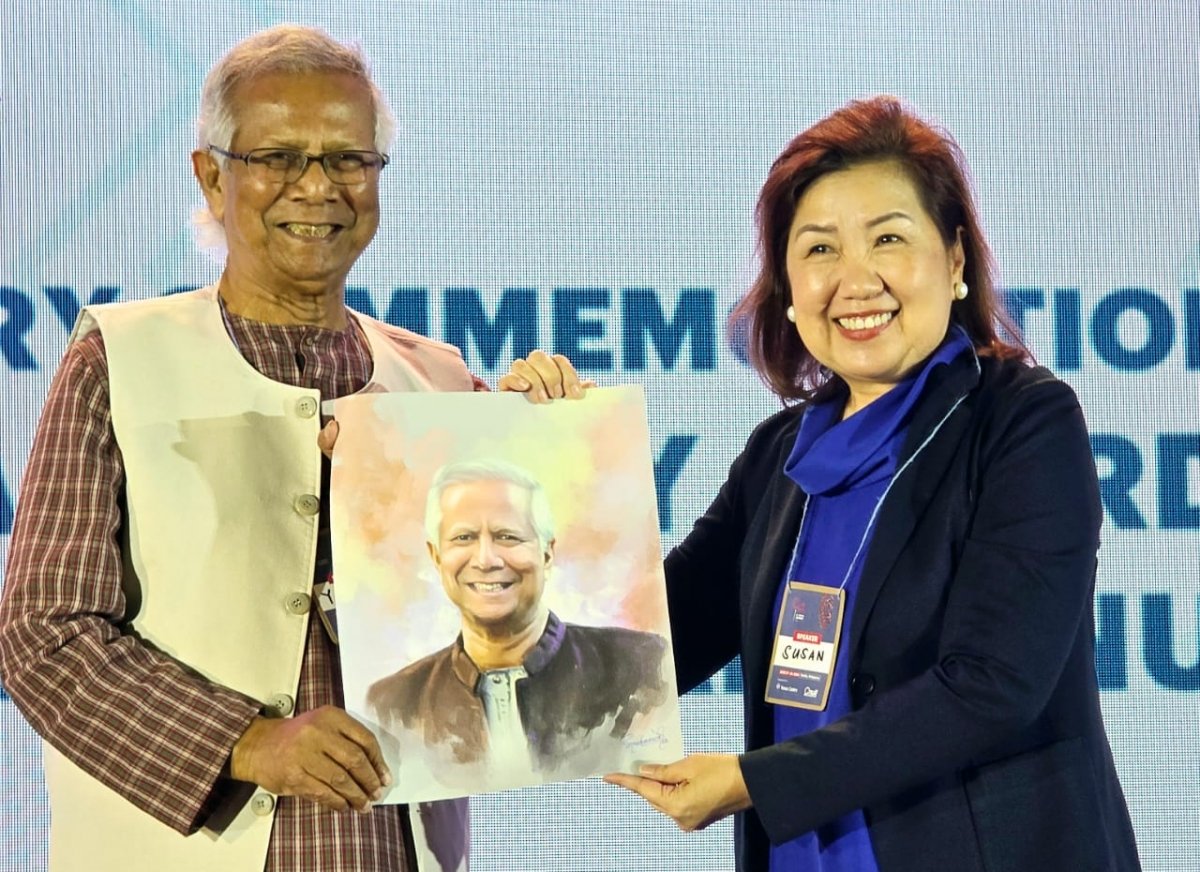Bangladesh Govt's Attack on Mohammad Yunus Is an Attack on Human Rights
An article by businessman and venture capitalist Vinod Khosla entitled "Bangladesh Govt's Attack on Muhammad Yunus Is an Attack on Human Rights."was published in the The Wire on 10 May 2024.
The link to the article in The Wire : https://thewire.in/south-asia/bangladesh-govts-attack-on-mohammad-yunus-is-an-attack-on-human-rights
---------------
Bangladesh Govt's Attack on Mohammad Yunus Is an Attack on Human Rights
Vinod Khosla | 10/May/2024
By targeting Yunus, the government is targeting innovators and social entrepreneurs who dare to challenge their authority.
Today, an 83-year-old Bangladeshi man awaits prison, convicted on unjust charges after a baseless campaign of harassment and intimidation by the Bangladeshi government. A mockery of justice at any time, this case is perhaps especially troubling given the defendant: Nobel Peace Prize Winner Muhammad Yunus.
Widely considered the “father of microcredit,” Yunus has dedicated his life to empowering the poor, especially women, through creating social businesses that have lifted millions out of poverty. Yunus and his most well-known business, the Grameen Bank, were awarded the Nobel Peace Prize in 2006 in recognition of their efforts to “create economic and social development from below.”
Today, the Grameen Bank stands as one of the world’s largest micro-finance institutions and more than 95% of its loan clients are women. The work of the Grameen Bank, and other pioneering organisations Yunus established, have contributed to worldwide recognition of Bangladesh as a hub of social innovation and entrepreneurship. The microcredit model and his other novel approaches have been replicated and adopted across Asia, Africa, Latin America and even North America.
From the 1980s to around 2010, Bangladesh’s government contributed to this success by creating an enabling environment for social entrepreneurship. The government deserves credit for supporting the advancement and replication of the Grameen model. Over the last decade, however, the Bangladesh government has taken a huge step backward through a politically motivated campaign of harassment and vilification of Yunus. Since 2011, Prime Minister Sheikh Hasina’s government has initiated and encouraged more than 170 frivolous lawsuits against him and made personal threats to his safety. These lawsuits have been heavily criticized by major human rights groups.
This campaign culminated earlier this year with Yunus being sentenced to six months in prison on spurious charges. Subsequently, eight of the nonprofit organisations he established have been forcibly occupied, with police taking no action to investigate, much less evict, the invaders. Today, he is free on bail as his lawyers pursue appeals to overturn the conviction.
The attacks on Yunus are not only personal, they are also an assault on the principles for which he stands – social justice, women’s economic empowerment, human rights, democracy and the rule of law. They are also a threat to the decades of economic progress made by Bangladeshi women. By targeting Yunus, the government is targeting innovators and entrepreneurs who dare to challenge their authority. This breakdown of the rule of law should act as a warning to those considering doing business in or investing in Bangladesh. If Yunus and his companies can be violated with impunity, who can feel safe and secure in the country?
It was to protest his mistreatment and persecution that I cosigned, along with more than 100 Nobel laureates, and a coalition of other political, social, and business leaders, several recent open letters asking that the prime minister cease her counterproductive campaign, which is widely seen in India and elsewhere as a political vendetta that ultimately hurts the wellbeing of her nation.
Let us imagine a different future, in which the government of Bangladesh encourages innovators and leaders like Yunus to support economic development and social advancement, and in which Yunus serves as a beacon of possibility to people worldwide. In this scenario, Bangladesh continues to flourish as a hub of business and development, has a healthy and mutually beneficial relationship with its neighbours, including India, and receives growing foreign investment even as it exports readymade garments alongside model programs to combat poverty and climate change.
As Richard Branson has already done, I call on all business and government leaders in India and beyond to try to convince the Prime Minister of Bangladesh to choose a different course – one that will be better for her people and her own legacy.
Vinod Khosla is a businessman and venture capitalist.
END
Related
15th Social Business Day 2025 to be held on June 27–28
Statement from Professor Muhammad Yunus:
দেশবাসীর উদ্দেশ্যে প্রফেসর ইউনূসের বক্তব্য
Prof. Muhammad Yunus felicitated in Manila on the occasion of his 40th anniversary of receiving the “Ramon Magsaysay” Award.

“র্যামন ম্যাগসাইসাই” পুরস্কার প্রাপ্তির ৪০তম বার্ষিকী উপলক্ষে প্রফেসর মুহাম্মদ ইউনূসকে ম্যানিলায় সম্মাননা প্রদান

Social Business Academia Dialogue & 3ZERO Club Convention 2024 held in Manila, Philippines

The 14th Social Business Day concludes in Manila, Philippines

The 14th Social Business Day 2024 kicks off in Manila, Philippines



